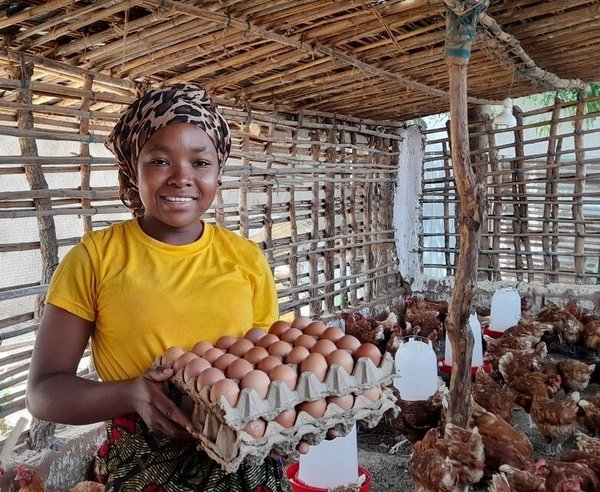 Read this article in French
Read this article in French- Share this article
- Subscribe to our newsletter
Promoting gender transformative approaches within rural youth employment
In rural areas social and cultural norms are often deeply embedded, having an effect on gender roles: young women are often excluded from decision-making processes and depend on male relatives for access to resources such as land or financial capital, information, and networks. Particularly young women lack role models and networks to support them in setting up and/ or improving their own economic activities.
These disadvantages for women and their exclusion from gainful economic activities lead to a range of negative effects of the economic growth of a household or a community, a region, or a country as a whole. Being young, female and living in rural areas is a triple challenge that leads to multiple structural disadvantages in the labour market at the same time.
Applying a Gender Sensitive and Transformative Approach (GTA) aims at EMPOWERING (young) women and TRANSFORMING existing systems by questioning established norms and gender stereotypes. If successfully implemented, a GTA can be a key to successfully ensuring employment and improved income opportunities for young women in rural areas. However, there are several steps before that are pertinent to ensure the inclusion of young women.
Four steps to transform gender roles in rural areas
It starts with REACHING young women through targeted mobilisation campaigns, e.g. through partner organisations, training institutions, NGOs, public partners (i.e. extension services) or (social) media campaigns.
It also means considering factors like timing, location, childcare, and menstrual hygiene support when planning training sessions; providing specialised training for women or ensuring gender-inclusive training, such as language adaptation for low-literacy or local language speakers; the inclusion of parents, husbands and the community to showcase the benefits of the training, and raising awareness, e.g. during rural job fairs organised with Agricultural Techical Vocational Education and Traning centers.
Further, it means ensuring that women BENEFIT from the services offered, for example by growing their businesses, securing additional income, or employment opportunities. Here, female start-up and mentoring programmes, the promotion of women‘s groups in entrepreneurship and market access, and activities especially for women, like women pitch nights, to ensure access to financing and grant schemes are needed.
Going a step further would be to EMPOWER women to be able to take their own decisions by promoting female role models, e.g. in entrepreneurship through advocacy and awareness raising and advocacy campaigns, mentoring programmes, by strengthening female leadership in (youth) organizations, policy and decision-making processes.
The elements combined have the potential to TRANSFORM gender roles within a society in the long-term. This may lead to women’s increased access to income, land and other resources more independence, a stronger presence in the public/ professional space and an uptake of professional/ economic opportunities beyond traditional house and farm work. This again may have a positive impact on families and communities as a whole, improving perspectives for future generations of girls and women growing-up in rural societies.
(GIZ/wi)
More information:





Add a comment
Be the First to Comment